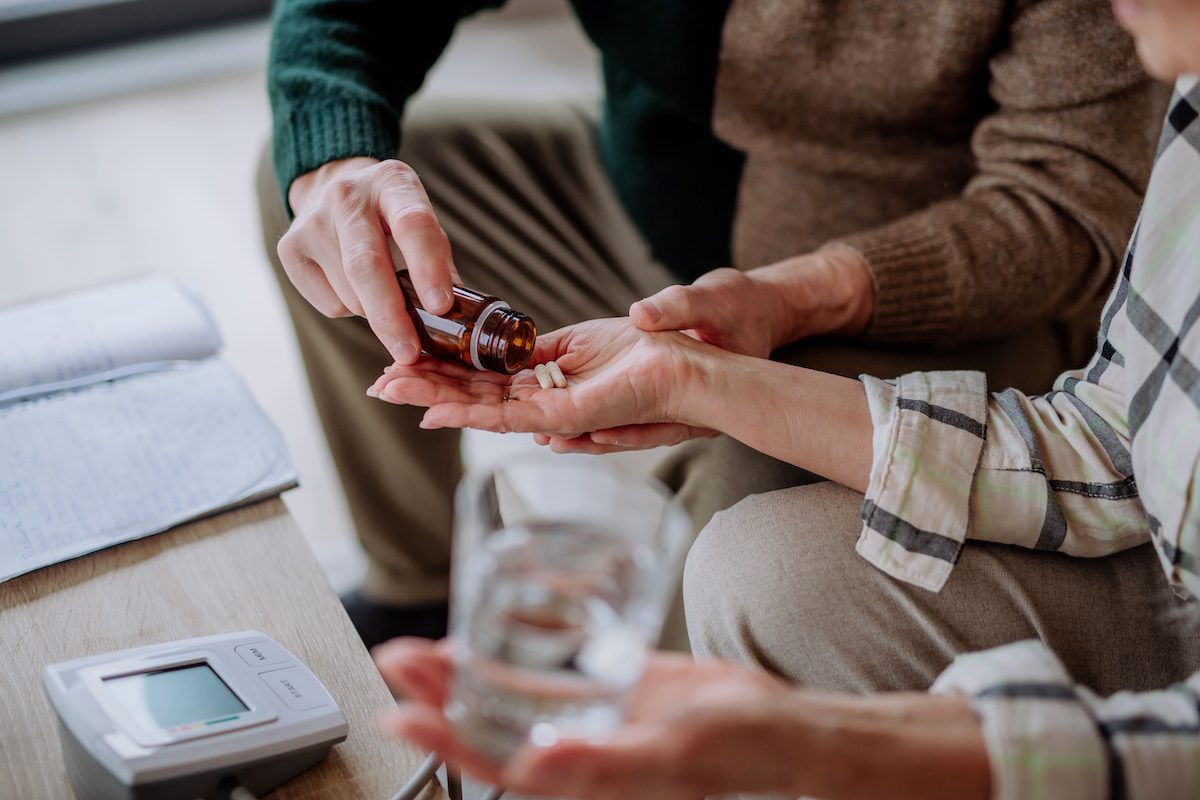Taking medication is an essential aspect of managing various health conditions, from chronic illnesses to temporary ailments.
However, staying on track with your medications can sometimes be challenging, especially if you have multiple prescriptions to manage or complex dosing schedules.
In this blog post, we will provide you with effective tips and strategies to organize your medications and ensure you stay on track with your prescribed treatments.
Understand Your Medication Schedule
The first step in managing your medications effectively is to thoroughly understand your medication schedule. Take the time to read the prescription labels, including the dosage, frequency, and any specific instructions from your healthcare provider.
Make a note of the medications you need to take daily and those that require occasional use.
Use a Pill Organizer
A pill organizer can be a lifesaver when it comes to managing multiple medications. These organizers come in various forms, including daily, weekly, and monthly options. By pre-sorting your pills, you can avoid confusion and minimize the risk of missing a dose.
Set Timely Alarms and Reminders
In our busy lives, it’s easy to forget to take medications at the right time. To overcome this challenge, set up alarms or reminders on your smartphone or other electronic devices.
You can also use medication management apps that provide notifications and help you keep track of your dosing schedule.
Create a Medication Calendar
Developing a medication calendar can significantly improve your medication management. Create a simple chart or use a digital calendar to mark the days and times you need to take specific medications.
Visualizing your schedule makes it easier to follow, and you can also share it with caregivers or family members who assist you with your medications.
Sync Medication Refills
To avoid running out of essential medications, make an effort to synchronize your medication refills.
Contact your healthcare provider and pharmacist to ensure that all your prescriptions can be refilled on the same date, making it more convenient for you to manage your medications.
Store Medications Properly
Proper storage of medications is crucial to maintaining their effectiveness. Keep them in a cool, dry place, away from direct sunlight and moisture.
Some medications require refrigeration, so be sure to follow the storage instructions for each specific drug.
Keep an Updated Medication List
Maintaining an updated list of all your medications, including over-the-counter drugs and supplements, is vital. This list will come in handy during doctor’s visits or emergencies, ensuring that healthcare providers have accurate information about your current medications.
Seek Pharmacist Consultation
Pharmacists are medication experts and valuable resources for managing your prescriptions. If you have any questions or concerns about your medications, don’t hesitate to consult your pharmacist.
They can provide you with detailed information about drug interactions, and potential side effects, and offer guidance on how to take medications most effectively.
Use Medication Management Apps
As mentioned earlier, medication management apps are valuable tools for organizing your prescriptions.
These apps can do more than just send reminders. They may also provide educational resources, track your medication adherence, and facilitate communication with healthcare providers.
Involve a Support System
Inform your family members, close friends, or caregivers about your medication schedule. Having a support system can be incredibly helpful, as they can remind you to take your medications and ensure you stay on track with your treatment plan.
Dispose of Medications Safely
Expired or unused medications should be disposed of properly to prevent accidental ingestion and environmental contamination. Follow local guidelines for safe medication disposal, or consult your pharmacist for recommendations.
Traveling with Medications
If you’re traveling, it’s essential to plan ahead for your medications. Pack them in their original containers and bring along extra doses in case of unexpected delays. Keep your medications in your carry-on luggage to avoid any issues with lost baggage.
Stay Informed About Your Health
Being proactive about your health can positively impact your medication management. Attend regular check-ups with your healthcare provider, keep track of any changes in your condition, and communicate openly about your treatment.
Establish a Routine
Incorporate taking your medications into your daily routine. Whether it’s right after breakfast or before bedtime, having a consistent schedule can help ensure you never miss a dose.
Managing Medication During Hospice Care
Hospice care provides compassionate and specialized support for individuals facing terminal illnesses, aiming to enhance their quality of life during their final stages.
Among the many aspects of hospice care, managing medications plays a critical role in ensuring that patients remain as comfortable and pain-free as possible.
In this context, medication management focuses on controlling symptoms, alleviating pain, and addressing any distressing side effects caused by the underlying condition or other treatments.
During hospice care, a team of healthcare professionals collaborates to create a personalized care plan for each patient. This plan includes a comprehensive medication regimen tailored to the individual’s specific needs and symptoms. The goal is to strike a balance between providing effective symptom management and avoiding unnecessary interventions that may diminish the patient’s quality of life.
Pain management is a primary concern during hospice care. The interdisciplinary hospice team, which typically includes doctors, nurses, pharmacists, and other healthcare professionals, works closely to assess the patient’s pain level and adjust medications accordingly.
The aim is not just to eliminate pain but to achieve a level of comfort that enables the patient to participate in daily activities and engage with loved ones.
In addition to pain relief, managing other distressing symptoms like nausea, shortness of breath, anxiety, and insomnia is equally vital. The hospice team carefully monitors the patient’s response to medications, making necessary adjustments to optimize symptom control.
Regular communication between the patient, their family, and the healthcare team is encouraged to ensure that any changes in symptoms are promptly addressed, and the medication plan is continuously updated.
This collaborative approach helps create an atmosphere of trust and open communication, promoting the patient’s well-being and providing much-needed support to both the individual and their loved ones during this challenging time.
Final Thoughts
Effectively managing medication is essential for maintaining your health and well-being. By following these tips, you can organize your medications, stay on track with your treatment plan, and achieve better health outcomes.
For further information about managing medication during hospice care, contact our team!




